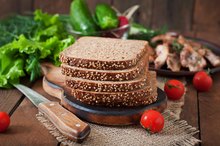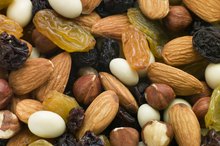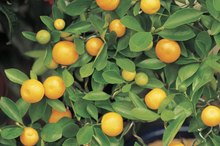What does fact checked mean?
At Healthfully, we strive to deliver objective content that is accurate and up-to-date. Our team periodically reviews articles in order to ensure content quality. The sources cited below consist of evidence from peer-reviewed journals, prominent medical organizations, academic associations, and government data.
The information contained on this site is for informational purposes only, and should not be used as a substitute for the advice of a professional health care provider. Please check with the appropriate physician regarding health questions and concerns. Although we strive to deliver accurate and up-to-date information, no guarantee to that effect is made.
Anti Candida Diet & Constipation
People who have frequent yeast infections, or candidiasis, sometimes try the anti-candida diet in an effort to reduce their likelihood of becoming infected again. Following this diet is thought to starve the yeast that cause the infection and correct the imbalance that brings on the symptoms. However, it can also have some unintended consequences, such as constipation, due to the restrictions following the diet entails. It also isn't clear if this diet is effective, according to the University of Maryland Medical Center 13. Check with your doctor before following this diet so you can limit your risk for constipation.
Candida Diet Basics
Some versions of this diet also limit milk and dairy products. These restrictions greatly limit the amount of processed foods allowed.
Anti-Candida Diet and Constipation
Diet to Reduce Constipation & Gas
Learn More
Diets low in fiber can lead to constipation, according to the National Institute of Diabetes and Digestive and Kidney Diseases 2. Because of the restrictions on foods containing yeast, fruits and grains, some people may not get enough fiber on an anti-candida diet. Certain medications and not getting enough exercise can make constipation even more likely.
Limiting Constipation Risk on the Anti-Candida Diet
Drink at least eight glasses of water per day, exercise and eat lots of fiber to help minimize your risk for constipation. Fill up on non-starchy vegetables and include gluten-free grains, such as rice, oats and millet, in your daily meals while on this diet. Both of these types of food are allowed on the anti-candida diet and provide the fiber you need to keep your stools soft and your bowel movements regular. Taking a psyllium fiber supplement may also help with constipation by making your stool softer so it's easier to pass, although psyllium may cause irritation in people with irritable bowel syndrome.
- Drink at least eight glasses of water per day, exercise and eat lots of fiber to help minimize your risk for constipation.
- Taking a psyllium fiber supplement may also help with constipation by making your stool softer so it's easier to pass, although psyllium may cause irritation in people with irritable bowel syndrome.
Other Potential Causes
Are Whole-Grain Breads Good for Constipation?
Learn More
You could be constipated for reasons other than following the anti-candida diet. Certain health problems, such as:
- underactive thyroid
- irritable bowel syndrome
- cystic fibrosis
- pregnancy
- colon cancer can cause constipation
Stress or even just holding in your bowel movements before visiting the restroom can lead to constipation sometimes.
Related Articles
References
Writer Bio
Based in Massachusetts, Jessica Bruso has been writing since 2008. She holds a master of science degree in food policy and applied nutrition and a bachelor of arts degree in international relations, both from Tufts University.









